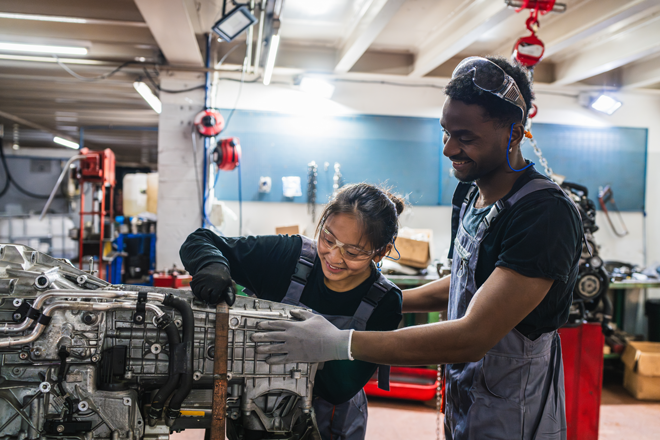February 17, 2025 | By Dominique M. Baeta

SRI is excited to announce a new partnership with Los Angeles Unified School District (LAUSD) to examine career development opportunities (CDOs) in the district. CDOs include career advising tools, work-based learning experiences, career and technical education (CTE), and Linked Learning pathways. These strategies build high school students’ career awareness and equip them with the knowledge, skills, and tools they need to select and pursue possible careers.
First, SRI is conducting a 1-year exploratory study to understand the landscape of CDOs offered in LAUSD and the patterns in student access, participation, and outcomes. SRI will then conduct a 3-year rigorous impact study of a promising CDO in the district. The findings from both studies will contribute to a more systematic understanding of how school districts are preparing high school students for college and careers. The findings will also inform educators’ decisions about which opportunities to offer and how to ensure access for all students.
This project builds on SRI’s prior work partnering with CTE leaders in Texas and West Virginia to better understand their programs of study. It also adds to SRI’s extensive research on career-themed pathways in high schools, which includes a multiyear evaluation of Linked Learning, a study of the Oakland Health Pathways Project, and an evaluation of a program to increase preparation for cybersecurity and computer science careers among high school students in Arizona.
SRI Education is leading this project in partnership with LAUSD and Policy Analysis for California Education. The project is part of the CTE Research Network 2.0. To learn more, visit the Career Development Opportunities in LAUSD page.
Topics: Access and equity Career and technical education Dual enrollment English learners First-generation college students Implementation research Integrated college and career pathway approaches Linked learning Low income Research and evaluation Rural Students of color Students with disabilities Transition to postsecondary Work-based learning
